Yes and No
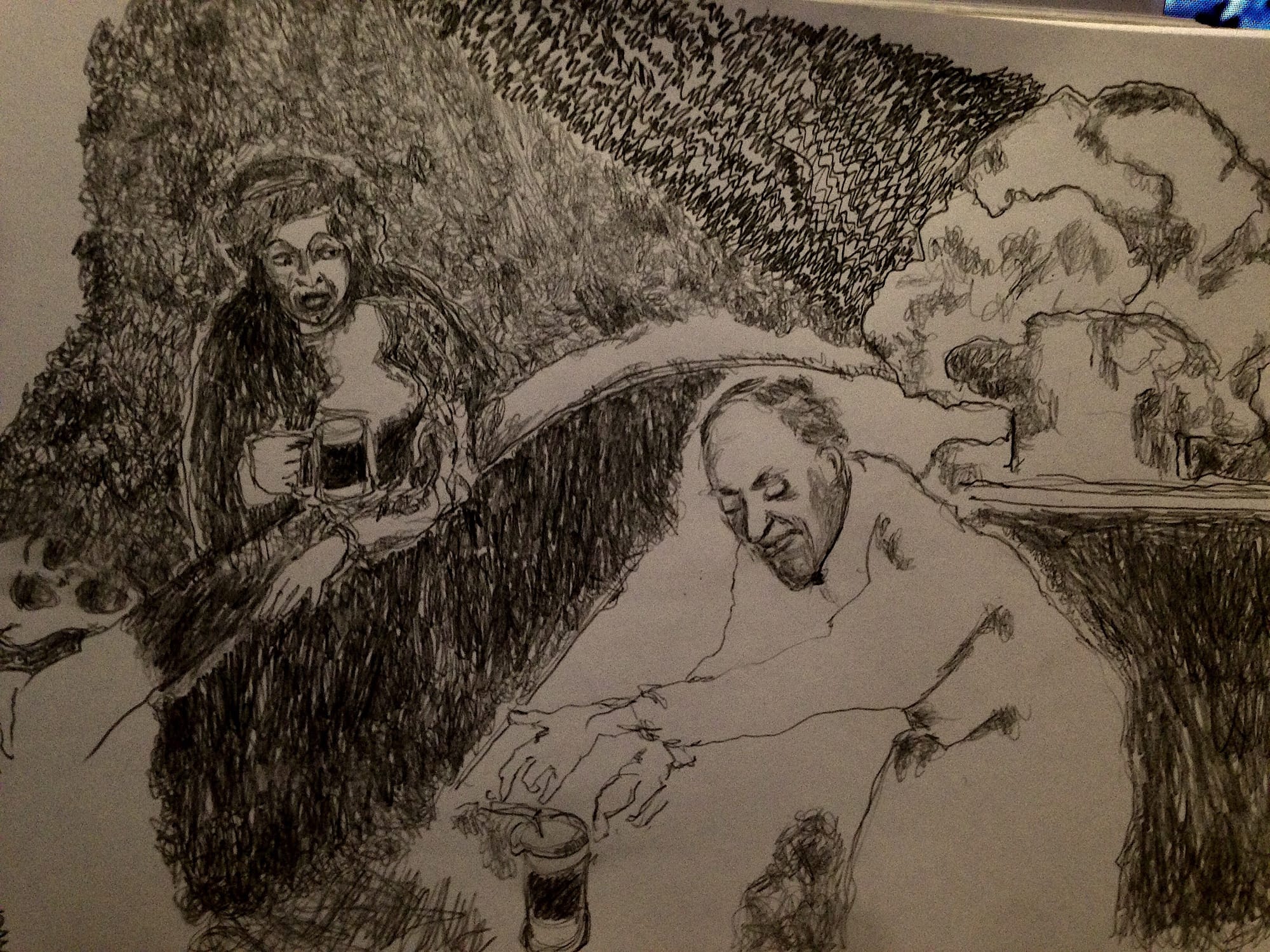
Interview by Richard Marshall
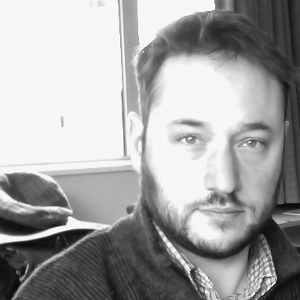
'I am a dialetheist, or glut theorist, and on that basis I also think some paraconsistent logic is correct. An example of a true contradiction is that for any set, there is always a bigger set than that (Cantor’s theorem), but also there is a set of all sets (the universe of sets) which is as big as it can be—so the universe is bigger than itself, and not. Obviously. ... Or for a more mundane example, if you quit smoking six weeks ago, then you might be both a smoker and not a smoker. Do you want a cigarette? Yes and no.'
'“Ultralogic” was Richard Routley/Sylvan’s name circa 1977 for his envisioned logic that would “open all locks”. Sylvan was a visionary and his work has been tremendously influential, on many people, and on me, especially at some formative moments. It’s the logic I was been hinting at above – the content/context neutral consequence relation that works no matter what.'
'I tried to make the case for paraconsistent vagueness in a paper over 10 years ago, after working with Mark Colyvan on the problem. Priest put something in the same vicinity forward. To be candid, so far the ‘glutty vagueness’ proposal has not gained many adherents—even fellow glut theorists like Jc Beall think you can have tolerance without gluts, as you say. Maybe he’s right. But maybe the ‘glutty vagueness’ view hasn’t been around long enough yet. Give it another four minutes.'
'A theory of truth ... will need to be paraconsistent, but that doesn’t make it ‘paraconsistent truth’—it’s just ‘truth’. I’d do it using a paraconsistent logic, but that’s just because I’d do it using logic . And also for the reasons above, it can’t be a ‘meta’ theory, because there’s no outside the universe. So that right there would be the difference with classical theories.'
'There is something to connecting paraconsistency and dialetheism to some kind of religious impulse. Set theory with a universal set, a universal logic, semantic closure—these are all totalizing worldviews, with some theistic overtones.'
Zach Weber is an expert in philosophical logic, with a focus on paradoxes and non-classical logic. Here he discusses why he's interested in non-classical logics, paraconsistency, strong and weak versions, his dialetheistic position, paraconsistency and ethics, paraconsistency and the temptation to mitigate against resolving inconsistencies, ultralogic, vagueness, another problem with boundaries, closure and revenge, metatheories and paraconsistencies, the challenge of trivial worlds, and paraconsistency and the religious impulse.
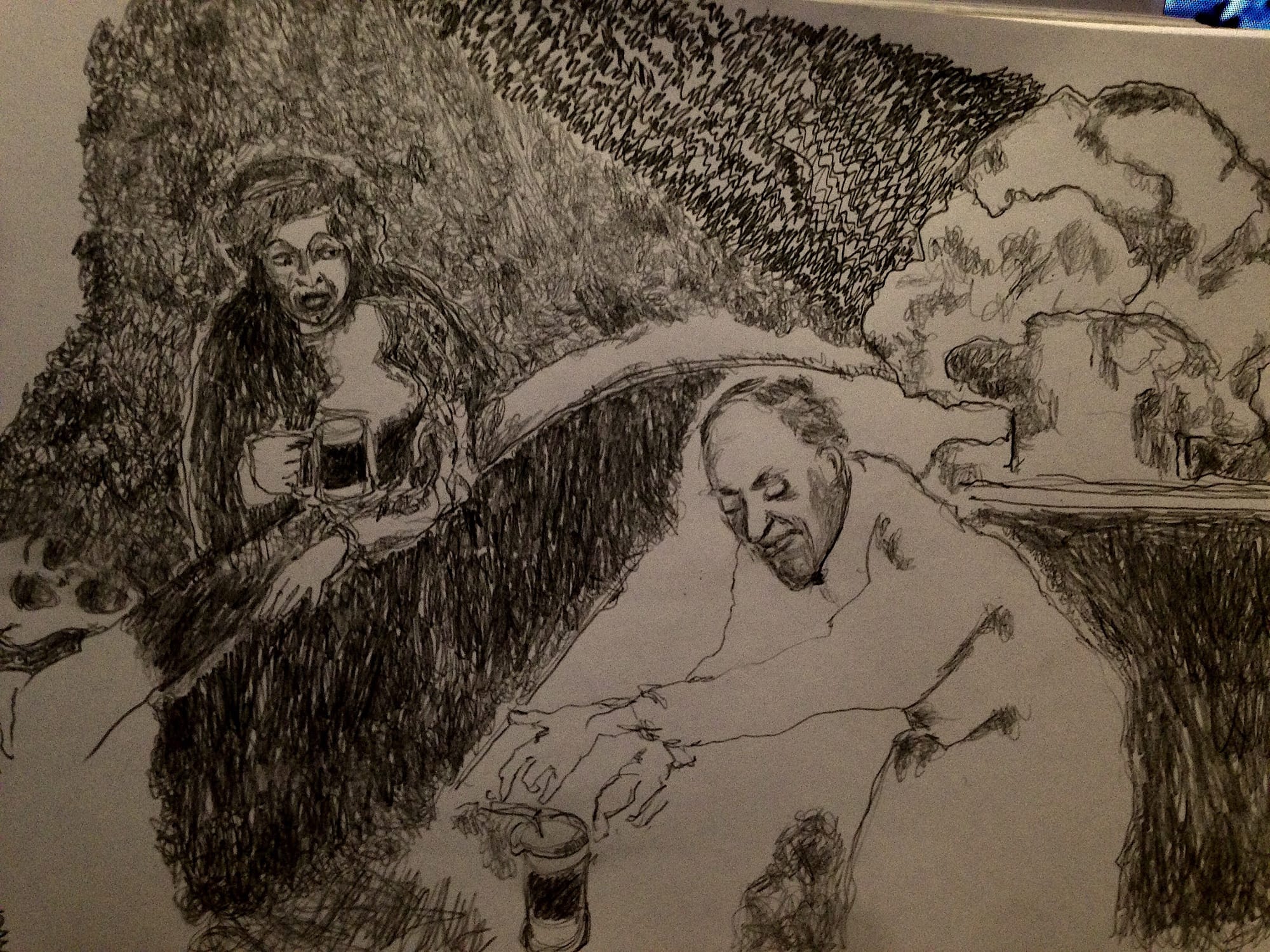
3:16: What made you become a philosopher?
Zach Weber: I thought I wanted to be a movie director. But alas. My student films were pretentious attempts to work out unarticulated philosophical problems, and they were also just bad films. At the same time, during my undergraduate at the State University of New York (Binghamton), I was taking philosophy classes and finding them life-changing. Existentialism, phenomenology, Nietzsche, with Mike Dillon. Then philosophy of mind and metaphysics with Eric Dietrich. My film classes were painful, while philosophy was talking about exactly what I wanted to be talking about, in a way that made sense to me. And the push to get more and more precise about these thingsthen got me studying logic and mathematics, too. It all felt very natural—ever since I was little, I would have long philosophical conversations with my father (a rabbi). It just started to seem like the obvious—and somehow more practical (!)—move to study philosophy seriously. But philosophy never felt like work. It felt like home.
3:16: You’re interested in non-classical logics. The usual reason for non-classical logic is that it’s felt that something is wrong with the classical inference relations, in particular, I guess, the classical rule of ex falso quodlibet which reduces everything to triviality. Is the interest in alternative logics then rooted in the kind of everyday reasoning we do, the kind of thing that happens at the fringes of both contradiction and tautology when we might be holding inconsistent beliefs of some kind? Is that from where your interest arises and if so, could you sketch for the uninitiated what the issues are that provoke non-classical logics?
ZW: That’s a nice way to put it – “the fringes of contradiction and tautology”.… The short answer to your question is ‘no’.
3:16: Haha
ZW: But here’s a longer answer. Let me get out of the way quickly that I don’t study how people actually reason, or even ideally reason, and I am not qualified to say anything about that. That’s a good project, but it isn’t mine. When I think about logic, I’m not primarily thinking about reasoning, or language, or anything much to do with people, at all. I’m with Frege (and indirectly Nick Smith, in his nice textbook), that logic is about the laws of truth : when does the truth of some propositions guarantee the truth of some other proposition, and when not? And then, logic has to do with reasoning roughly the way differential calculus is about aiming rocket ships. You need calculus to launch a rocket ship correctly, but that’s not what calculus is about .
I’m interested in non-classical logic, and especially paraconsistent logic, because I think logic is the laws of truth, and I believe, for independent reasons, that there are true contradictions.That is, there are sentences P that are both true and false, at the same time in the same way. Truth value gluts. I think that because there are old-school true axioms (or axiom schemas), like Tarski’s truth schema,
It is true that P, if and only if P
or the Cantor/Dedekind/Frege naïve set comprehension schema,
A thing is in the set of Fs, if and only if, that thing is F
that are undeniably true, and they entail inconsistencies (assuming bivalence and some other minimal assumptions). They give you the Liar Paradox and the Russell Paradox, respectively, and more paradoxes too. “To say of what is, that it is, is true,” says Aristotle, and so the liar sentence is true. And then it’s false, too.
So, more important than logic, is truth —and in particular, the truth of some contradictions. That there are true contradictions is surprising, maybe, but that’s life. It’s like when the existence of squares and the Pythagorean theorem implied that there are irrational numbers – contradictions might not be what you were expecting or hoping for, but you just accept it and deal with it, because there are squares, and the Pythagorean theorem is true, so there must be irrationals. That’s it. The truth schema and naïve comprehension just look like innocuous facts about the world we live in. So I follow the argument where it leads and admit that some contradictions are facts, too.
Okay. (!) But as you point out, classical logic says that if a contradiction is true, then everything is true—ex falso quod libet!—and it looks like a pre-requisite on reason itself that not everything is true; so classical logic just has to be wrong. It’s not that classical logic is or isn’t a good description of how people reason (though for other reasons, it’s probably not); it’s that that classical logic can’t make sense of some even-more-basic-than-logic truths, so classical logic cannot be the correct laws of truth. If there are true contradictions, but the world still makes any sense at all, then logic must be paraconsistent.
I’ve never quite moved on from the project Descartes set out: to go back to what is certain, or as close to certain, as we can find, and work our way out from there. For me, the naïve set comprehension axiom is more obviously true than most anything about formal logic (except maybe modus ponens…), and it’s worth re-arranging logic to fit what seems certain, rather than give up on certainty because some theory of logic tells you to. That doesn’t mean I start revising my theory of logic every time I don’t like something; but I submit that the above two axioms about sets and truth are about as good a candidate for “axioms” as you are ever going to find. So I think it’s worth making a special concession for them.
And it is independently motivated to make that move, to a non-classical logic. Like you say, there are plausible reasons to doubt classical logic. Classical logic says that you can pick three random sentences P, Q, R, and then it comes out as classically valid that
either P implies Q, or Q implies R
which doesn’t square well with intuition. (What if P, Q, and R simply have nothing to do with each other?) So I can get behind the motivation for paraconsistency via the paradoxes of the material conditional, or a basic dissatisfaction with ex falso quodlibet. That way lies relevant logic, which is where a lot of work on paraconsistency in the Australasian tradition—the one I’m trained in—went. Routley/Sylvan, Plumwood, Meyer, Mortensen, Brady, Priest, Restall, many others. But worries about ex falso on its own are not what’s driving me, and I’m not sure those logic problems in isolation would have motivated me to spend my time on non-classical logic. I think we need non-explosive logic because there really are true contradictions. Not because of how we reason, but because of how things are.
3:16: Paraconsistent logic is a response. Again, can you say what it is trying to do and why deontic logic should take it seriously and perhaps give an example of the error-proness of human reasoning that requires us to go non-classical?
ZW: As I just suggested, logic isn’t about reasoning per se, but it is applicable to reasoning, in the same way that number theory isn’t about banking but does help with banking. In that way, paraconsistent logic gives us some formal guidelines for making sense of a world that often appears to be senseless. It’s a way to “keep it together” when things seem to be falling apart. My favorite example of the sort you are asking about is the “pacifist warmonger” argument due to Alan Weir, where we might plausibly hold the following two principles simultaneously:
(1) It is always wrong, in all times and all places, to go to war.
(2) Sometimes it is necessary, and so not wrong, in very specific times and circumstances, to go to war.
Both of these claims have some intuitive pull for being true . Nevertheless, Weir points out, it would be terrible to reason from these to some absurdity, like
(3) We should never go to war, so if we do, it’s okay to bomb civilians.
Sadly, people do sometimes reason this way. A paraconsistent deontic logic might give us a way to keep this sort of thing under control. That’s got nothing to do with true contradictions. It’s just saying that we shouldn’t give up on logic even in situations that seem morally illogical.
But empirically I very much doubt that many people are using logic to reach conclusions, or to check their conclusions. A dog isn’t using calculus to chart the trajectory of a frisbee in order to catch it, and people aren’t using formal logic to make decisions. If a military general were to reason as above, that it is now okay to bomb civilians, I suspect that pointing out that this is an instance of the highly counterintuitive ex falso quoldlibet isn’t going to help.
If there is anything that requires us to go non-classical, it is the fact that there’s just no good way of talking about or describing the world in toto that is consistent—and not because of something about us, but because of the way the world is.
3:16: What’s the difference between strong and weak paraconsistency and which of them do you hold – or is that dependent on what the problem is you’re facing?
ZW: Logic—if there is such a thing—is what holds no matter what problem we are facing. That’s controversial these days, but again I follow some very traditional lines of thinking, and take it that logic is universal. Whatever logic is, it is content and context neutral; something that depends on what problem you are facing isn’t logic. That means that we don’t get to dial up or dial down logic depending on the problem. There are lots of other extremely useful strategies we can dial up or down – other sorts of pragmatic, heuristic, non-deductive ways to problem-solve. But pretty much ipso facto, those things aren’t logic. So, on that sort of view, there’s no getting to vary your logic depending on the situation.
The weak/strong paraconsistency spectrum you allude to in your question, then, depends on how seriously you take contradictions. If you think “It could never be both raining and not raining—but even if it were, that wouldn’t mean it was raining frogs” then that’s a kind of weak paraconsistency, just denying ex falso quodlibet. Maybe you think contradictions are somehow epistemically possible, but never actual. Probably the vast majority of paraconsistent logicians would be closer to that kind of conception: inconsistency is something to do with our beliefs, or cognition, or imagination. On the other hand, strong paraconsistency is the claim that contradictions don’t entail everything because there are true contradictions and yet not everything is true. Weak paraconsistency only holds the part before the “because”. Like I said previously, I believe there are true contradictions, but I don’t think that everything is true, so that makes me a “strong” paraconsistentist. I should repeat that the majority of people who work in paraconsistent logic are not “strong” paraconsistentists of this sort, so I’m not representative.
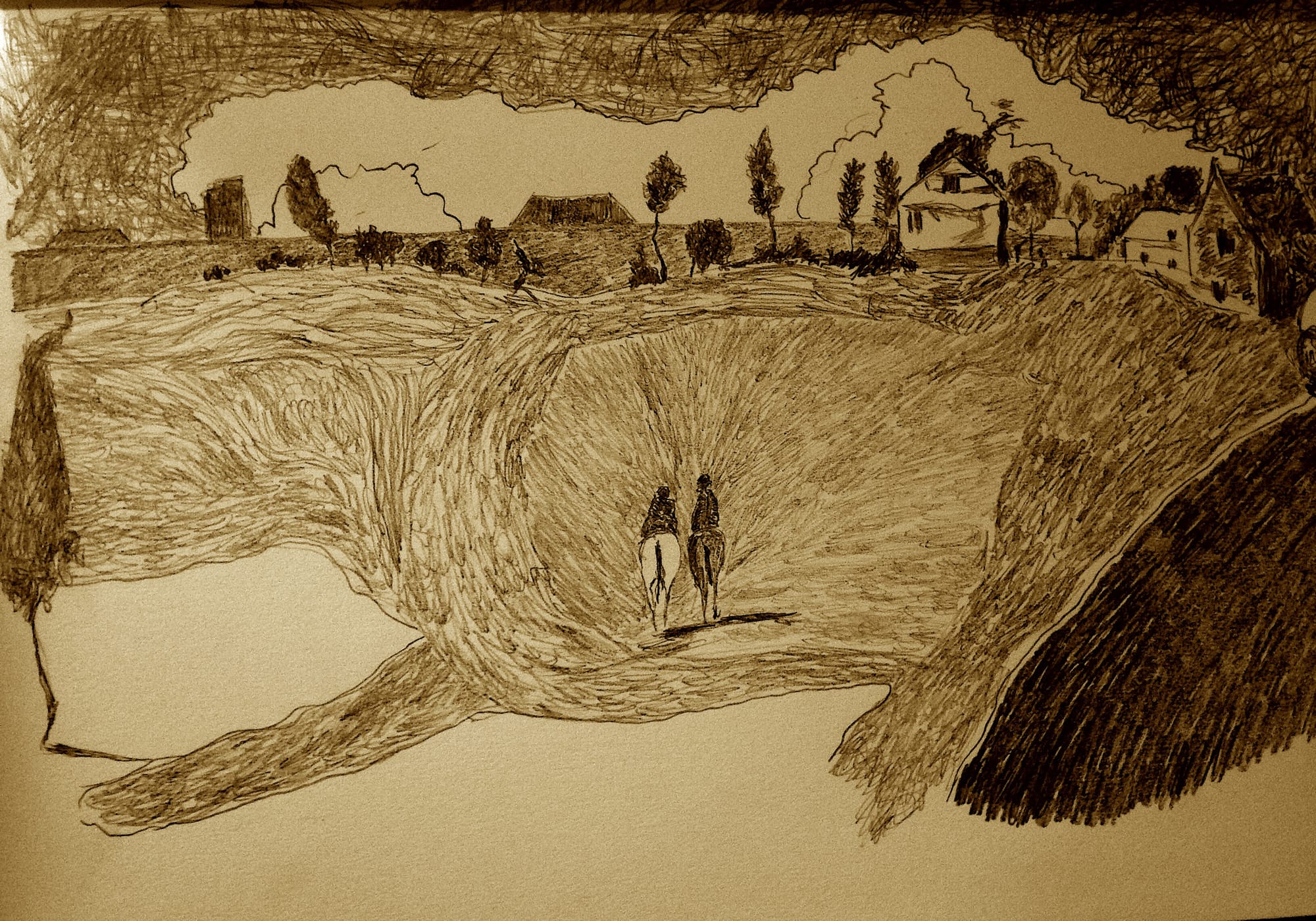
3:16: There are different types of paraconsistent logics aren't there – Discussive, Preservationist, Adaptive, Relevance, Formal Inconsistency and Dialetheism are the key ones but it’s that last one that seems to attract you (not that they all rule each other out) – is that because you think the best reason for studying inconsistency would be if there were true inconsistencies in the actual world, and this is the logic that assumes that? Can you explain this position – and maybe give some examples of true contradictions?
ZW: The only thing that all paraconsistent approaches have in common is that they generate a notion of logical consequence that doesn’t validate explosion (ex falso). The various approaches to paraconsistency you mention give some kind of theory of consequence, how to draw conclusions from premises in a principled way, without explosion.
I do take a dialetheic viewpoint, but it’s different than the others you mention—dialetheism isn’t a logic or logical approach. Logic tells you what follows from what. Whereas dialetheism is just a thesis about truth: that there are true contradictions. Maybe it would be better to call dialetheism “truth-value glut theory”: it is the theory that there are gluts, sentences that are true and false. That’s it. So logic (and paraconsistent logic in particular) is about consequence , whereas dialetheism is about truth . You could, in principle, be a dialetheist and believe in any logic you like.
(The word ‘dialetheism’ was made up by Richard Routley/Sylvan and Graham Priest around 1980. It’s useful, but tends to be misleading, because the ‘ism’ suggests a whole ideological package, whereas it really just means ‘true contradictions’. Jc Beall has been pushing the idea that ‘glut theory’ is a better name, that avoids such misconstruals. Jc is probably on to something—Priest himself has expressed some ambivalence about the word ‘dialetheism’—but I don’t love ‘glut’ either, aesthetically. Any suggestions for a better word appreciated.)
So yes, I am a dialetheist, or glut theorist, and on that basis I also think some paraconsistent logic is correct. An example of a true contradiction is that for any set, there is always a bigger set than that (Cantor’s theorem), but also there is a set of all sets (the universe of sets) which is as big as it can be—so the universe is bigger than itself, and not. Obviously. ... Or for a more mundane example, if you quit smoking six weeks ago, then you might be both a smoker and not a smoker. Do you want a cigarette? Yes and no.
3:16: So how would a paraconsistent approach deal with a moral dilemma like the one Helen Bohse proposes regarding the identical twins who need to be surgically separated but where only one can survive? Does the paraconsistent approach offer more than a classical one?
ZW: That’s a good question. The advantage to a dialetheic paraconsistent approach to moral dilemmas is that you could at least logically describe them honestly: they are intractable dilemmas. But that doesn’t tell you how to solve them. Some cases, like Bohse’s example, or Sophie’s choice, just don’t have a good answer—they are tragic. Paraconsistency doesn’t provide a magic cure to tragedy. The paraconsistent advantage is that, even in such cases, you can’t turn around and say, “Now that life has forced upon me an impassable contradiction, I am justified in doing any crazy horrible thing that I chose.” Or even worse, “Because logic says contradictions cannot happen, this situation is not as tragic as it appears. There must be some secret consistent comfort behind the apparent horror.” Nope. Those ways lie madness.
But I toyed with this idea (paraconsistent deontic logic) in a short paper as a grad student, and haven’t been back to it, because I didn’t see a way forward. You admit the contradiction—i.e. you should save both babies, but you can’t—okay, but then what? Maybe someone else will see the next move.
3:16: One thing that strikes me about the paraconsistent approach is that it might mitigate against resolving inconsistencies. Take the current state of our scientific theories – say, relativity and quantum mechanics. It’s unlikely that they are consistent with one another. That would suggest that something is wrong. Doesn’t the dialetheist approach mitigate against that and let us live with the inconsistency when we ought to be puzzled and admit there’s absurdity in our theoretical view, even if pragmatically we can continue?
ZW: This is definitely something people worry about. “If some contradictions are okay, how can we ever reject a theory, let alone make progress?” This is a topic that paraconsistent logicians and dialetheists in particular, and Graham Priest in particular, have already said a lot about. The idea is that non-paraconsistent approaches say that, always and in every single case, an inconsistency means that a theory needs to be revised. All that the paraconsistentist claims is that this one-size-fits-all policy is too broad, too blunt. Often, an inconsistency does mean that the theory under question needs fixing. Just not always . “All men are created equal, but some men are only 3/5 ths of a person” needs fixing. But there may be some cases where, on balance, in light of all the evidence and various considerations, some theories do not need to be revised even if they are inconsistent. So we no longer have contradiction as a simple catch-all trigger for revision. We have to go case by case. But that’s how it is anyway. You cite the current state of affairs in physics, for instance – at the moment, these theories have so many virtues they aren’t being rejected, despite apparent contradiction. (I’m not claiming though that physicists are dialetheists, or even paraconsistentists.) Usually, when a theory needs revision, it’s not solely on the basis of logical inconsistency; it’s because it is getting something wrong. We revise theories when they are wrong, and keep them—even inconsistent ones, sometimes, at least for a while—if they get enough right.
The whole point of paraconsistency is that not everything is true, even if some contradictions are. Maybe an example is “The moon is a frog.” That’s just false, and not because of logic; it’s false because the moon is not a short-bodied amphibian, as a matter of fact. Propositions like “the moon is a frog” are absurd . If a theory entails something absurd , that’s a good reason to reject (or at least very seriously question) the theory. Flat earth theory (on some versions) predicts that I’ve never flown from the northern hemisphere to the southern, but I have (and not in virtue of logical form), so flat earth theory is outright false. No one needs symbolic deductive logic to reach these kinds of conclusions. On the other hand, if the claim “every collection is a set” leads to a contradiction (like Russell’s paradox) you don’t have to give up the claim automatically. Because sets and collections are, obviously, the same thing, so prima facie that outweighs the inconsistency that follows. You weigh up the options. Lots of other things can mitigate for and against theory revision; consistency is just another moving part, important but not an absolute.
3:16: What’s Ultralogic – and are you an ultralogician?
ZW: Ah, ultralogic. Ahhhh. “Ultralogic” was Richard Routley/Sylvan’s name circa 1977 for his envisioned logic that would “open all locks”. Sylvan was a visionary and his work has been tremendously influential, on many people, and on me, especially at some formative moments. It’s the logic I was been hinting at above – the content/context neutral consequence relation that works no matter what. To be really pedestrian about it, Sylvan seemed to think that “ultralogic” was somewhere in the vicinity of a weak relevant logic like the one he worked out with Bob Meyer in 1976, DL (dialectical logic)—in the journal Studies in Soviet Thought , no less. But not even Routley/Sylvan said for sure which logic is ultralogic. I certainly don’t know, though I can say with some confidence which ones aren’t. (Sorry, abelian logic!) To be an “ultralogician” means to hold out hope for the existence of an ultralogic, and in particular, a strongly-paraconsistent one.
Depending on what you think about possible and impossible worlds, there may not be an ultralogic. If a “world” can be any chaotic, anarchic way one likes (the way Priest or Franz Berto imagine), including worlds not closed under logic (so maybe P&Q can hold at a world without P holding there) then there is no logic that works “everywhere”. If there are worlds like that, there is no ultralogic. Routley in Ultalogic as Universal? talks about a world where people believe P and believe P implies Q but they don’t believe Q; then, he says, Q holds over that world but not in that world. But this remains to be explored. An easy thing to say is that (ultra)logic is what holds at all “normal” or somehow “well behaved” worlds, but that strikes me as artificial. (Patrick Girard and I did some work on this—“Bad Worlds”—a few years ago.) Logic should work everywhere! But to be honest—and why work in philosophical logic if you aren’t going to be honest?—I take the word “ultralogic” to be aspirational. The title of Routley’s essay does end in a question mark.
Recently I’ve been saying (with varying degrees of seriousness) that I endorse “ultra-paraconsistency” which is even stronger than strong paraconsistency, in that it holds that absolutely all theorizing from the foundations up is deeply inconsistent and needs to avoid any reliance at all on assumptions of consistency. Ultra-paraconsistency amps up glut theory to say that not only are some things both true and false, but some things are both true and not true (which even some glut theorists have tried to avoid). It means fully abandoning any classical grounding and going off into ultralogical space—or better, realizing that our world is ultralogical and that many old rules need to be recast. I’m not an ultralogician, but I’d like to be one when I grow up.

3:16: Tim Williamson suggested that handling vagueness was one of the big challenges for AI. You’ve argued a paraconsistent approach to this problem haven’t you. Can you sketch for us how vagueness can best be captured by this approach, and why tolerating gluts is superior to the epistemic approaches of Williamson and Sorensen who stick to classical logic as well as the alternative put forward by Jc Beall?
ZW: Vagueness, okay. Anyone who has tried to deal with vagueness—usually via the sorites paradox—eventually hits a hard problem: the existence of sharp boundaries. Tolerance for a vague property F, like baldness, says that when two objects are very F-similar, they must both be F or not. That seems constitutive of vagueness, but you realize that tolerance must be, at least in some sense, false—because not everything is F. Not everyone is bald, but some people are, so there really can be—are!—two people with almost exactly the same number of hairs on their heads, but one is bald and the other isn’t, by the least number principle. So then it’s a question of how to deal with that.
The glutty approach deals with it by saying that people at the borderline are both bald and not bald. You just admit that tolerance is both true and false. I wouldn’t necessarily say this is superior to all other approaches, but the apparent advantage is the same advantage as with the liar or other paradoxes above—you just get to admit that things are the way they are, without having to explain the “anomalies” away. Some people are bald, some are not, there must be a first bald person (again by the least number principle), but no two people differ by only one hair and yet one is bald but the other is not. Those are all true, and there’s a logical theory that backs it up.
Vagueness is everywhere. If vagueness generates contradictions, then we are almost literally swimming in contradictions. That’s a big jump from unusual “spandrels” like the liar paradox or the Russell paradox at various limiting scenarios. But think about it. You are waiting for a bus. The bus is two minutes overdue. It is still not late, not really. As the minutes tick on, though, it is increasingly late. For a while, though, it is also not late. At four minutes, well, the bus is late, but not. Eventually, at 15 minutes, it’s just late. And then it arrives and you go home and eat dinner and there was a contradiction and you go to sleep the same as every other day. You’re fine. And also not exactly fine.
I think the vagueness shows how contradictions pervade in our ordinary experience in a deep and also innocuous way. I tried to make the case for paraconsistent vagueness in a paper over 10 years ago, after working with Mark Colyvan on the problem. Priest put something in the same vicinity forward. To be candid, so far the ‘glutty vagueness’ proposal has not gained many adherents—even fellow glut theorists like Jc Beall think you can have tolerance without gluts, as you say. Maybe he’s right. But maybe the ‘glutty vagueness’ view hasn’t been around long enough yet. Give it another four minutes.
3:16: This is a neat problem: In theories of connected parts, the existence of boundaries, as parts of everyday objects, is basic to any such theory; but it seems like if boundaries exist, then either distinct entities cannot be in contact, or else space is not topologically connected. How does a paraconsistent approach overcome this problem?
ZW: I love this problem. It’s a logic problem, but its spatial, geometric, or even physical (or at least, phenomenal). The idea is that every object has a boundary, but what are boundaries made of? Varzi likes to quote an example from Leonardo da Vinci: consider the surface of the ocean, against the air. Is the boundary between them air, or water? If the air and the water each have their own boundary, then there’s some space between and they don’t touch. But if they touch, their boundaries overlap, and then that boundary is air-and-not-air, water-and-not-water. So it’s a modus ponens, modus tollens problem. And the paraconsistent approach I’ve investigated (like most paraconsistent approaches to other problems) takes the modus ponens direction. Objects do touch, so they do overlap, so their boundaries are inconsistent. When we shake hands, some particles on your hand—on your boundary—are both you and not you (because some of them are me, and not me!).
The nice (worrying?) thing about this is it lets you stay with some of your initial, maybe naïve intuitions, like ‘everything has a boundary’. (My second grade teacher, Mrs. Amison, told me very severely that when you draw a picture you should always outline all the objects with thick black crayon, so maybe that’s where I got it…) These views are easy to state and are intuitively compelling. The trick is to make them rigorous and serious. You pay for keeping naiveté by working through some difficult, counterintuitive demands in the logic and mathematics. The hard part, always, is in the details.
In this case, it means developing a theory of spatial boundaries that makes sense of the naïve view, and still also delivers something like a recognizable picture of boundaries. So this requires a paraconsistent mereotopology —a theory of connected parts. You work out a way that objects can touch in connected space, and their shared boundary is inconsistent, without everything else falling apart. Basically, the idea is that paraconsistency makes an inconsistent boundary not a problem (or at least not automatically a problem). Aaron Cotnoir and I did some work on this; I’ve tried to develop the idea of an inconsistent boundary more since then, by giving mathematical details of the structure of boundaries, and checking that elementary point-set topology still works over it. Once you start working out the maths, it gets messy; there are boundaries between themselves. It’s kind of beautiful, in a fractured way.
3:16: In the context of logic and truth, what is closure and what has it got to do with ‘revenge problems’?
ZW: Truth. This goes back to some of my original reasons for getting interested in paraconsistency. As everyone knows, in 1931 Gödel proved that there is no such thing as a complete and consistent theory that answers all questions via axioms. Any consistent axiomatic theory leaves something <em>out</em>, is incomplete. The paraconsistent motivating instinct is, what if we allow some inconsistency?—then can we allow every truth in ?
In this context, ‘closure’ means that if we use some key notion to set up our theory of logic and truth, then that notion should be theorized in the theory itself. Truth is such a notion: we say “P & Q is true iff P is true and Q is true,” so the theory should also say what it means for something to be true. The obvious answer, as Aristotle said to Tarski, is “P is true iff P”. Such a theory, that talks about its own notion of truth, is semantically closed. And then you get the liar paradox.
Semantic closure means that a “universal” theory includes a truth predicate. More generally, closure means including all the needed expressive devices—truth, validity, set membership, rules for working with these notions, whatever. If we want to give a logico-philosophical account of the world, then by closure that account itself must be part of the account, because we are in the world and don’t get to step outside of it to think it over. (This is a point that some so-called continental philosophers have been better at seeing: there is no ‘meta’ language.) Closure means reopening the incompleteness theorems for discussion, not because Gödel made a mistake, but because he made some assumptions that are up for reconsideration. He assumed consistency.
Then ‘revenge’ is this self-undermining problem that arises from trying for closure. Other approaches face revenge because they use some notion they are not allowed (by their own lights) to use. For example, we might step outside the liar paradox, and say, “Okay, this sentence is neither true nor false” but now there’s this new notion, “neither”, that can’t be included inside the theory; otherwise, we can make a sentence that says “This sentence is either false or neither”—a revenge liar. This always happens, as Tarski and Kripke and everyone says. You come up with some concept X to solve the paradoxes, but then there’s a new paradox in terms of X. So you either have to deny closure and say that X is ‘outside’ in the metalanguage, or you bite the bullet and accept that a closed theory is going to be inconsistent. For me, I don’t even really see this as a choice, because again you can’t go ‘outside’ to solve these problems. I was originally motivated to look at dialetheism because it puts completeness back on the table, and apparently without revenge. Any “bad” consequences of the theory are accepted at the outset as part of the theory. Whether it succeeds, is not known. It’s often said that the dialetheic approach faces revenge too. E.g. I said above that paraconsistency is the claim that some things aren’t true – but if some contradictions can be true, what does ‘not true’ mean? Not true, but maybe also true? I think that objection is overblown, but I can say better why from your next questions.
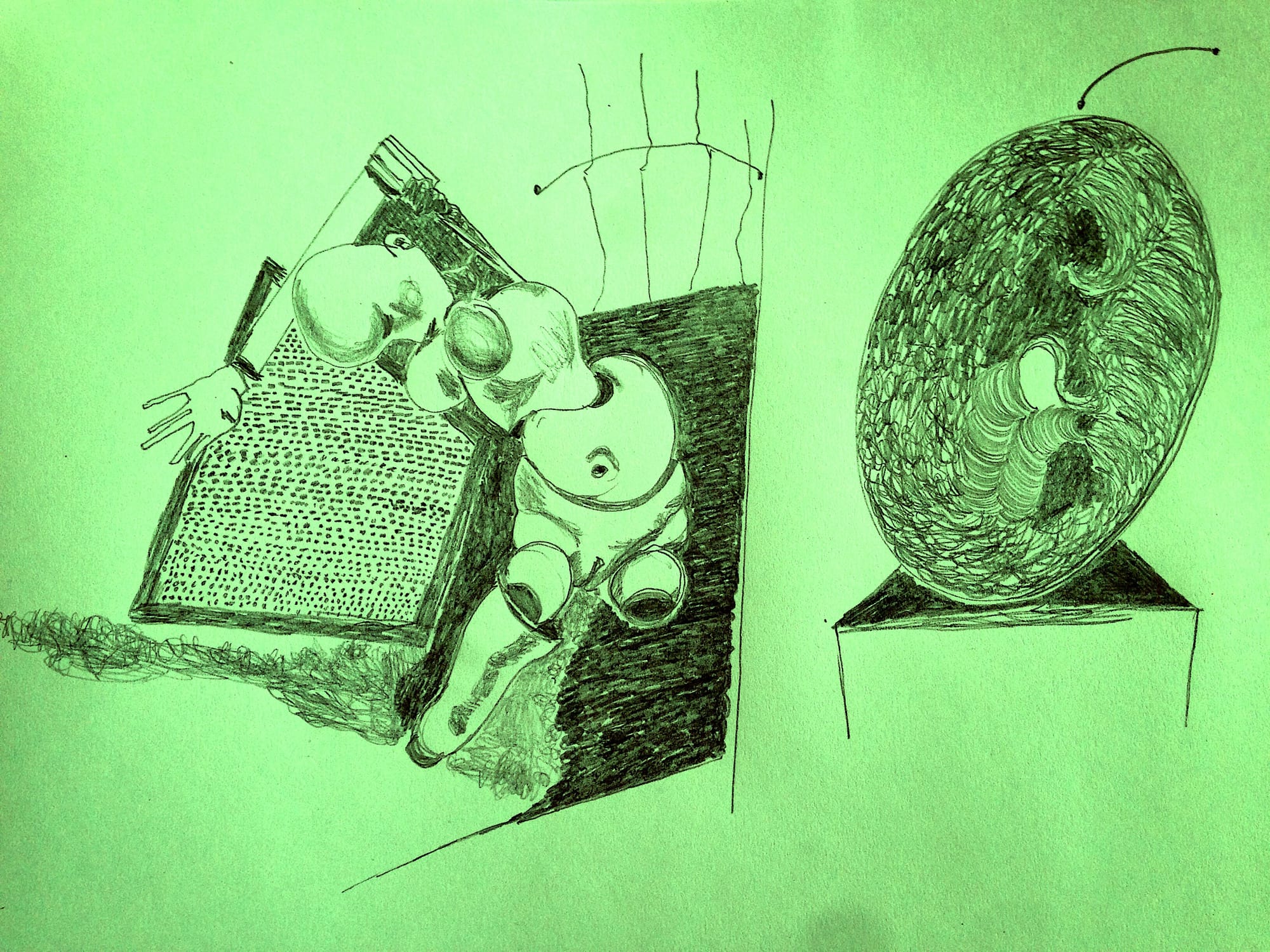
3:16: So how would you approach giving a metatheory for paraconsistent truth – and what would be different from a classical theory?
ZW: A theory of truth, for the reasons above, will need to be paraconsistent, but that doesn’t make it ‘paraconsistent truth’—it’s just ‘truth’. I’d do it using a paraconsistent logic, but that’s just because I’d do it using logic . And also for the reasons above, it can’t be a ‘meta’ theory, because there’s no outside the universe. So that right there would be the difference with classical theories – they are all given in some kind of meta-language ‘over’ the object language. Fitch pictures this a ladder, with natural language at the top.
Generally, a paraconsistent metatheory means giving the mathematical theory of how logic works, where the mathematics itself is paraconsistent. That means, working out paraconsistent mathematics from the foundations up, which is no small thing. One big difference in going this way would be how counterexamples work. Classically, the existence of a counterexample means an argument is invalid ; but not necessarily so, paraconsistently. Then basic results like soundness and completeness theorems will change, because as you suggested above, the force of counterexamples has changed. ‘Not true’ just means, well, not true—but maybe not the way you meant it if you were speaking in a ‘classical’ language. This is something I’ve been working on with Hitoshi Omori, and also Guillermo Badia and Patrick Girard again.
3:16: A trivial world for the logician is a world where every proposition is true all at once, and it’s considered an absurdity that I guess the paraconsistent logician is working hard to avoid. So what issues does triviality raise for reasoning cogently about them and how do you propose we should proceed?
ZW: This is a hard one. To the extent that there are ‘worlds’ at all (whatever that means), it seems to me that there must be a trivial world, where every single proposition is true. Because the answer to “Which worlds are there?” is surely “All of them”, as Lewis taught us. But that makes a problem, because if possibility is cashed out in terms of the existence of a world, then the existence of the trivial world would make “possibly P” true for all P. There are ways to sustain that—by adopting a relatively weak modal logic. Saying that ‘anything is possible’ is one step away from absurdity. And technicalities aside, I think there’s something authentic about accepting the possibility of absurdity – it’s like accepting our own finitude. <em>Mono no aware</em>and such.
But. A trivial world does some serious harm to any theory of logical validity . That’s because an argument is (usually) taken to be valid iff truth is preserved from premises to conclusion at all worlds of all interpretations. But then there’s a problem: it looks like every argument is invalid:
1. Consider the argument from P to Q. (For example, let P=Q, so we are considering “P therefore P”.)
2. At the trivial world, both P and not-P are true (i.e. P is true and false).
3. But if not-P is true at a world, then P is not true at that world.
4. So at the trivial world, P is true but P is not.
5. So at the trivial world, truth is not preserved from P to P.
6. So “P therefore P” is invalid.
Of course, even if you believe in a trivial world, there are options for blocking this argument. One is to deny (3), that “if P is false, then P is not true”, and that blocks the move from (2) to (4). But I think (3) is true because, as David Lewis puts it, worlds are real things, like mountains, and if “it’s not true that there’s a goat on the mountain” then it’s true that “there is no goat on the mountain”. Another way to go is to say that validity is only defined over some sub-class of ‘good’ worlds, and it doesn’t matter (for validity) what happens at the ‘bad’ worlds. I’ve argued (with Patrick Girard, again) that this distinction is specious. So I can see that, if there is a trivial world, then nothing is necessary and everything is possible; and then the idea of a valid argument (or the special case of a theorem) as something that cannot fail no matter what is just hopeless. Ultra-paraconsistency.
I don’t know whether I believe there is a trivial world. On the one hand, there must be one, just because there are so many worlds (if there are any at all). But on the other hand, there can’t be one, for our rational projects to make any sense. Hitoshi Omori and I did some work on this, but it’s hard. The trivial world is some dark shit. It says everything can fail, even the gods. Trying to see the trivial world is like standing on the event horizon, the rim of everything, and the wind is very strong there.
3:16: Hegel and then Marx seem to have built paraconsistent systems, and religions like Buddhism and Christianity seem to build paraconsistent, indeed, dialetheistic systems too. Graham Priest, for example, seems to find Buddhism a pretty comfortable place for his dialetheism. Would a paraconsistent Christianity or Buddhism or Hegelianism appeal to you?
ZW: I think that, rationally speaking, you should adopt beliefs or theories using very conventional sorts of metrics: accord with evidence, simplicity, explanatory depth, coherence, elegance, etc. All that paraconsistency buys you is that the mere fact that a belief is inconsistent is not in itself sufficient reason to reject the belief. But the mere fact that paraconsistency allows that you <em>can </em>maintain some inconsistent belief P doesn’t mean that you should believe P. For instance, I think that, all told, believing in naïve set theory seems right, and therefore I accept some of its paradoxes; while, all told, believing in ghosts seems not right, and then I don’t accept some of the inconsistencies that would come with ghosts (even though, just logically speaking, I guess I could). There’s good reason to think that all the Fs form a set of all the Fs, and there’s good reason not to think that poltergeists are real. The reason I don’t believe in ghosts isn’t that it would be formally inconsistent to think something can be dead and not dead; if all that stands between you and belief in free floating spectral spirits is symbolic logic, then you have bigger problems than logic can help you with.
So, I’d say in the cases you mention, you should weigh up whether theories like Buddhism, Christianity, Hegelianism or Marxism are (defensibly) true, bracketing consistency concerns. And I’d take them one at a time, on their individual merits. In the case of Christianity (or any sort of theism with a personal God), I’d just say that it’s a theory that makes all kinds of predictions that manifestly fail (see: the news), so I don’t believe it, even though paraconsistency does not rule out e.g. a being who can create a stone so heavy he can both lift it and not. If I were a theist, I’d be a paraconsistent theist, but I’m not, because like Russell said, if there is a God I’d want to ask Him why He went to such pains to hide Himself.
Marx? From what I understand of it, Marx gave a pretty compelling critique of capitalism. But I’m not as clear on what his alternative is, so I guess I’m not quite a Marxist, either. And Buddha made a pretty compelling case that nothing is permanent, but I’ve always found the more soteriological aspects of Buddhism too passive, almost nihilistic. So “no” on that count, too – but not for reasons to do with paraconsistency.
I’ll admit, though, that there is something to connecting paraconsistency and dialetheism to some kind of religious impulse. Set theory with a universal set, a universal logic, semantic closure—these are all totalizing worldviews, with some theistic overtones. Contradictions are, in a way, a stand-in for the great mysteries in life, something that can’t be solved; and obsessing over them anyway in the hopes of understanding is a kind of reaching for transcendence. What Anselm called credo ut intellegum . I got drawn in to this reading Priest’s Beyond the Limits of Thought . That book is about using reason to try to peek over the horizon of reason itself, to see ‘the other side’ somehow in rational terms, and that had me hooked. It still does.
3:16: And for the readers here at 3:16, are there five books you can recommend that will take us further into your philosophical world.
ZW: I like short books with numbered lines.
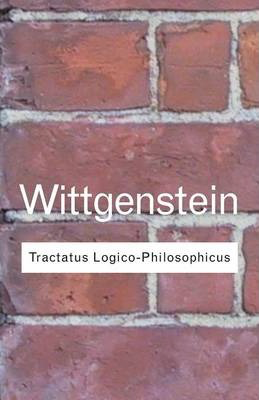
My favorite philosophy is like poetry—Wittgenstein’s Tractatus is beautiful.
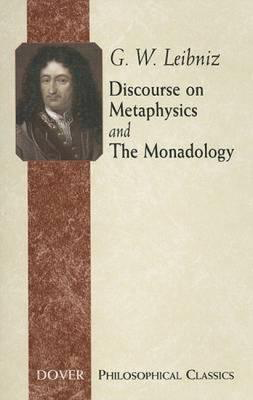
Also bits of Leibniz’s Monadology, or some sequences in the later Nietzsche.
A good mathematical proof can be like this, too.
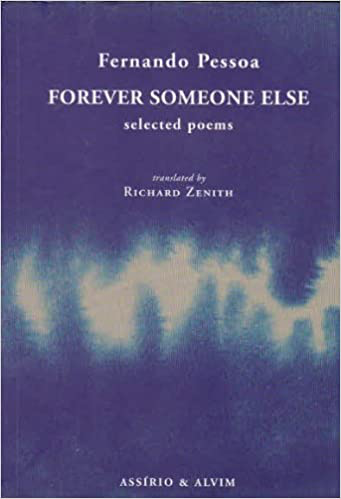
For some straight-up philosophical poetry, Fernando Pessoa is excellent (see the collection Forever Someone Else , translated by Richard Zenith)—works written under the name Alberto Caiero are some of the most striking bits of phenomenology I’ve read.
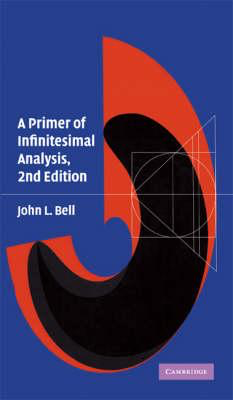
John Bell’s A Primer of Infinitesimal Analysis is a masterclass in elegance and making non-classical mathematics seem less like a logician’s curio and more like real mathematics.
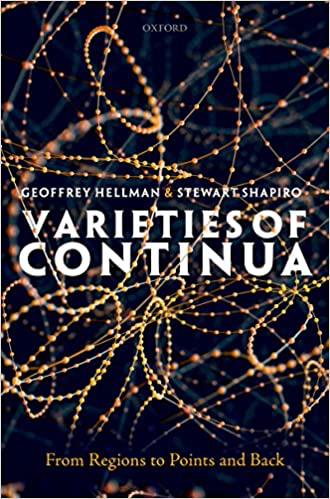
Geoffrey Hellman and Stewart Shapiro’s Varieties of Continua is a more recent deep-dive into the meaning of points and continuity.
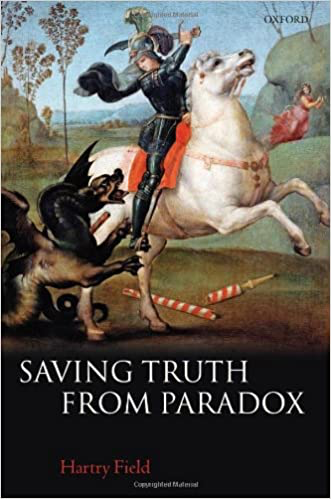
Hartry Field’s Saving Truth from Paradox
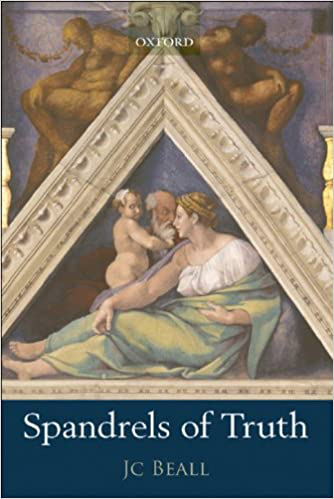
and Jc Beall’s Spandrels of Truth are never too far away on my desk.
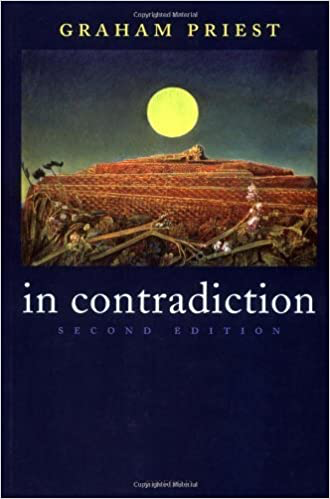
And Graham Priest’s In Contradiction is good,
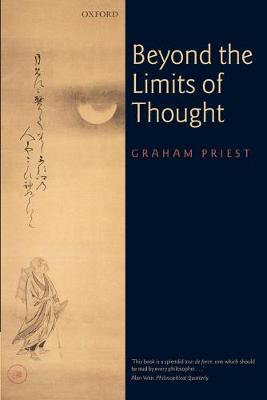
but it was his epic Beyond the Limits of Thought that I read first, and that one changed my life.

ABOUT THE INTERVIEWER
Richard Marshall is biding his time.
Buy his second book here or his first book here to keep him biding!
End Time series: the themes
Huw Price's Flickering Shadows series.
Steven DeLay's Finding meaning series
NEW: Joseph Mitterer's The Beyond of Philosophy serialised